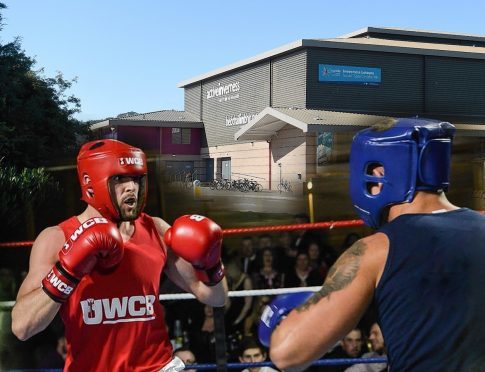Novice charity boxing may never be staged in Inverness in the wake of a safety row that prompted the late cancellation of an event planned for Saturday.
High Life Highland (HLH), the council’s sports arm, scrapped the so-called “white collar” fixture amid pressure from boxing’s governing body in Scotland.
It raised concerns about the event’s planning and insurance cover.
A spokesman for HLH suggested yesterday that it may not budge on the issue despite a return event being organised for Aberdeen in November.
He said: “Until Boxing Scotland’s position is changed we don’t see how Ultra White Collar Boxing (UWCB) events can be held in our facilities.
“The sport’s governing body has expressed ‘grave concerns’ over the ‘significant risk’ in which participants were being placed at such events.”
HLH has attempted to mediate, maintaining “open communication channels with all parties,” but without success.
It is understood at least 900 tickets were sold by UWCB for Saturday’s event which promised to raise about £7,000 for its designated charity Cancer Research UK.
HLH has agreed to stump up the money for any deposit refunds due to the organiser for booking the Inverness Leisure venue. That cost has not been disclosed. UWCB has rejected the allegations made by Boxing Scotland.
It has held similar events in 100 UK cities for fighters at least 18 years old.
Participants get free professional training and are matched to an opponent based on weight, fitness, ability and age.
They wear protective headgear and have a medical before and after their three-round bouts. Each is obliged to raised money for the charity.
White collar boxing was spawned as a “corporate contact sport” after a doctor and a lawyer trained for a few weeks before fighting each other at a black tie event in New York in 1988.
In six years, UK events have raised millions of pounds for cancer research.
UWCB is seeking legal advice about Boxing Scotland’s allegations.
Boxing Scotland did not respond to the Press and Journal questions yesterday.
